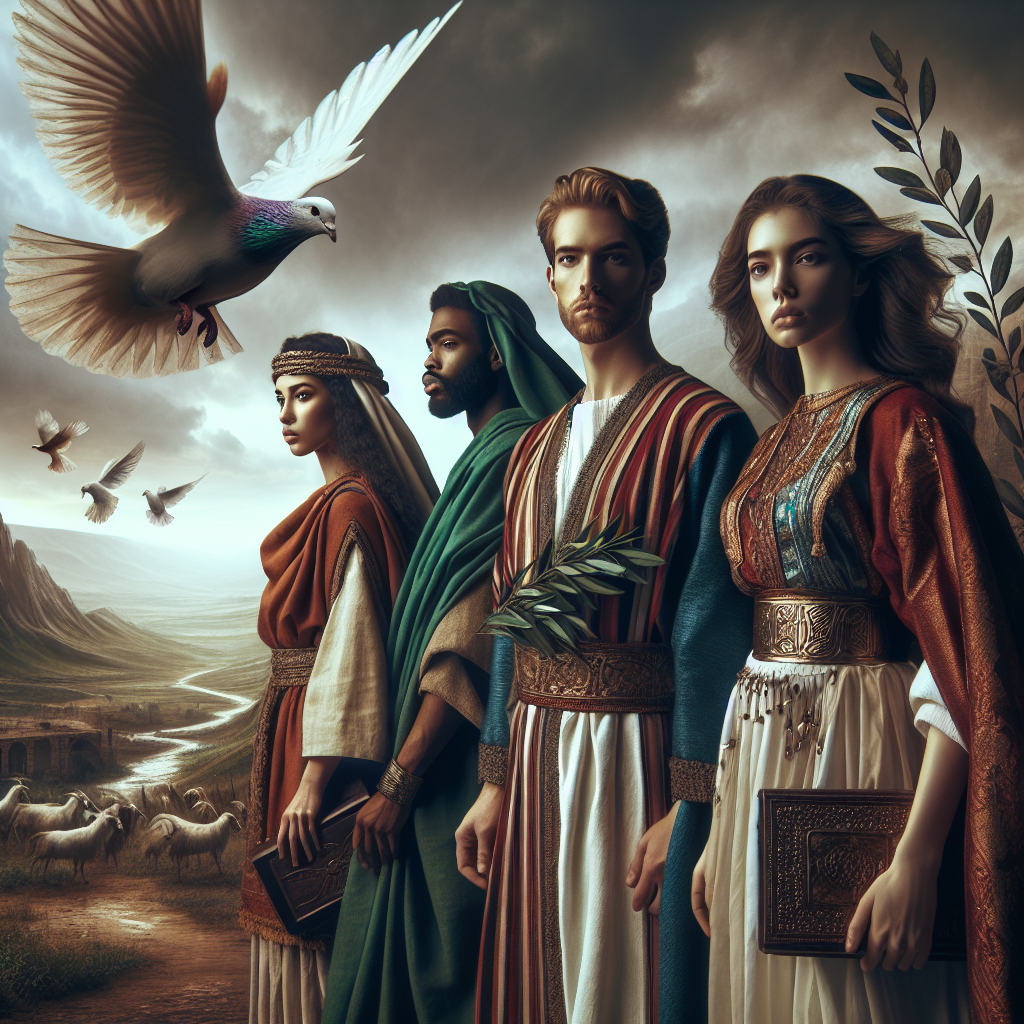Unveiling the Divine: Lessons from Frankenstein and the Bible
Do you remember the first time you encountered a tale that shook you to your core? For many, that story is Mary Shelley’s "Frankenstein," also known as "The Modern Prometheus." In this narrative filled with transcendental themes of creation, responsibility, and the quest for knowledge, we find profound connections to timeless biblical principles. Let’s explore these spiritual insights together!
The Allure and Danger of Forbidden Knowledge
One of the central themes in "Frankenstein" is the pursuit of forbidden knowledge. Victor Frankenstein is driven by an unquenchable thirst to uncover the secrets of life, much like Adam and Eve in the Garden of Eden.
"And when the woman saw that the tree was good for food, and that it was pleasant to the eyes, and a tree to be desired to make one wise, she took of the fruit thereof, and did eat, and gave also unto her husband with her; and he did eat" (Genesis 3:6).
Both tales caution against the dangers of overreaching curiosity:
-
Victor’s Downfall: Victor’s quest leads to his ultimate downfall, demonstrating that some knowledge is too burdensome for mere mortals.
-
Adam and Eve’s Expulsion: Similarly, Adam and Eve’s disobedience results in their expulsion from Eden, signifying the heavy price of seeking forbidden knowledge.
Reflect: Have you ever been tempted by something that seemed attractive but ultimately led to negative consequences?
The Burden of Creation
In "Frankenstein," Victor becomes the creator of a being that he quickly regrets. His horror and neglect reflect the grave responsibilities that accompany creation.
The Bible mirrors this sentiment through God’s meticulous care in creating humanity:
"So God created mankind in his own image, in the image of God he created them; male and female he created them. God blessed them and said to them, ‘Be fruitful and increase in number; fill the earth and subdue it. Rule over the fish in the sea and the birds in the sky and over every living creature that moves on the ground’" (Genesis 1:27-28).
Consider these parallels:
-
Stewardship: Unlike Victor, who shirks his responsibilities, God’s creation is followed by a blessing and a charge to humanity to care for the Earth.
-
Care and Nurture: Victor’s abandonment contrasts sharply with the loving nature God shows towards His creation.
Reflect: How do you perceive your responsibilities towards the things you create or bring into your life?
Guilt and Redemption
Both the character of Victor Frankenstein and biblical figures grapple with the burdens of guilt and the quest for redemption.
"Come unto me, all ye that labor and are heavy laden, and I will give you rest" (Matthew 11:28).
Key takeaways:
-
Victor’s Guilt: Victor is tormented by his creation’s actions, understanding too late the consequences of his hubris.
-
Redemption in the Bible: The Bible repeatedly offers a path to redemption for those burdened by guilt, from King David to the Apostle Paul.
Reflect: Have you ever experienced guilt so deeply that it felt insurmountable? How did you seek and find relief?
The Monster’s Loneliness
The creature in "Frankenstein" yearns for companionship and understanding, feelings that echo the biblical theme of human need for community.
"The Lord God said, ‘It is not good for the man to be alone. I will make a helper suitable for him’" (Genesis 2:18).
Lessons from these narratives:
-
Human Need for Connection: Just as God created Eve to be with Adam, the creature’s deep sense of loneliness highlights our intrinsic need for companionship.
-
Consequences of Isolation: The monster’s tragic actions underscore the painful consequences of isolation and rejection.
Reflect: Have you ever felt isolated? What steps can you take to build meaningful connections in your life?
The Quest for Redemption
Ultimately, both "Frankenstein" and the Bible offer profound insights into the quest for redemption.
"But God demonstrates his own love for us in this: While we were still sinners, Christ died for us" (Romans 5:8).
Consider:
-
The Creature’s Plea: Despite being rejected, the creature seeks redemption and understanding, reflecting a deep, almost spiritual yearning for reconciliation.
-
Biblical Redemption: Christianity offers a path to redemption through Jesus Christ, providing a powerful narrative of grace and forgiveness.
Reflect: In what ways are you seeking redemption in your own life? How do these ancient texts inspire and guide you in your journey?
Conclusion: The Eternal Lessons of Creation and Compassion
Mary Shelley’s "Frankenstein" and the Bible, though originating from vastly different contexts, converge on profound themes that resonate with us today. Both texts urge us to grapple with the ethical and moral implications of our actions, the burdens of creation, and our unrelenting quest for knowledge.
Call to Action: What do you think about these connections between "Frankenstein" and the Bible? Have you experienced similar struggles and redemptions in your own life? Share your thoughts and stories in the comments below. Let’s continue this enriching conversation about the timeless lessons from both literary and biblical narratives.
If you want to learn how ANY book relates to Biblical principles, please try our Books and Scripture GPT. Simply type in the name of a book and let it show you insights you might not have been aware of!


